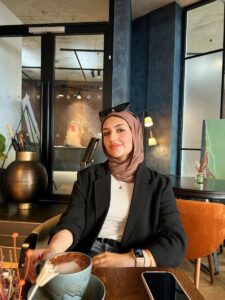
Home-schooling
I was born in Germany and spent most of my childhood being homeschooled, an experience that significantly shaped who I am today. Learning at home gave me the freedom to develop strong numeracy and literacy skills, improve my multilingual abilities, and nurture my creativity from an early age. It also promoted my well-being, as the flexible schedule allowed me to balance study with personal interests.
In Year 9, I was homeschooled again to sit my GCSEs early, focusing mainly on Maths and English, alongside Religious Studies, P.E, IT, Art, and Science. Lessons were delivered in person by a qualified teacher. One of the advantages of being homeschooled was the flexible schedule—I could take breaks when needed, enjoy homemade meals, and focus on my mental and physical health. My tutor ensured I followed a nutritious diet with brain-boosting vitamins and even took me along to her appointments and shopping trips to teach me how to communicate with others. This real-world exposure, though unfamiliar at first, helped me build confidence and social skills. I also had a daily schedule for classes, and I was given homework to complete at home, which gave me structure and helped me stay on track.
The only downside of homeschooling was missing my school friends, although I stayed in touch and cherished the moments we spent together.
In Year 10, I returned to school, driven by my passion for art-related subjects, which were difficult to pursue at home due to limited resources. At school, I studied Design Technology – Textiles, Art, and IT for my GCSEs, which became the foundation for my future studies. I then completed a BTEC Level 3 Extended Diploma in Art and Design, achieving triple distinction (equivalent to three A-levels).
I continued my academic journey by studying Architecture at university, followed by an MSc in Construction Project Management. Today, I am proud to be a PhD candidate in Civil Engineering at the University of Leeds.
It was during my PhD that I was diagnosed with dyslexia and ADHD—a revelation that finally explained why I had always felt different. After years of wondering why I processed information differently, the diagnosis was both validating and eye-opening.
Throughout my education, I faced doubt and discouragement. Some teachers told me I would be “lucky to even reach A-levels,” let alone attend university. I was even advised not to aim for a Russell Group university and was encouraged to lower my aspirations. While there is nothing wrong with studying locally, these comments undermined my confidence and made me question my abilities. For a time, I started to believe the limitations others placed on me.
However, when I graduated with my MSc, I realised I had defied the odds. I refused to be defined by others’ doubts and proved them wrong. Despite the challenges, I faced every obstacle head-on, driven by determination and self-belief.
The greatest lesson I have learned through this journey is that I never gave up on myself. Even when faced with doubt, I continued to show up for myself. Today, I stand proud of how far I’ve come, knowing that I created my own path—one defined by resilience, passion, and unwavering belief in my potential.
 Written by Nahl
Written by Nahl
About Us
The general aim and objective of Head Up! is to promote the interests of young people with disabilities, physical and/or mental health conditions, specific learning difficulties and neurodivergence; offering them practical advice and support concerning their education and welfare.